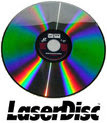Excellent Film Analysis from Scouser Rob Ager
Something about filmmaking that I find infinitely fascinating is the breaking down of theme and metaphor within a movie. Subtext (what the film is really saying just below the surface) in a feature is really cool and adds much more depth after you discover it. It is never accidental, and can provide new insight to what the message of the film is, as well as the personal stamp of the filmmaker.
 For years, this kind of information was only available in books and film classes. With the advent of DVDs and commentary tracks (which began with the now-defunct Laserdisk format), cheap film appreciation became available to the masses. Despite this, most commentary tracks are superficial and boring, or center on production, with thematic elements getting less disc time. There are exceptions (Criterion discs make a real effort here), but if you want to study a film through an educated perspective, the aforementioned books and schools still seem to be your best bet.
For years, this kind of information was only available in books and film classes. With the advent of DVDs and commentary tracks (which began with the now-defunct Laserdisk format), cheap film appreciation became available to the masses. Despite this, most commentary tracks are superficial and boring, or center on production, with thematic elements getting less disc time. There are exceptions (Criterion discs make a real effort here), but if you want to study a film through an educated perspective, the aforementioned books and schools still seem to be your best bet.Enter Rob Ager. Here's a guy who has begun to breakdown films and offers his wonderful comments on a few select films on his website found here. What separates him from the scads of others who have done the same, is that he voices his words over edited versions of the very movies he is analyzing. It plays like a short PBS special (about 15-20 minutes for each film), and is very well done.
 I've watched just about all of these and have been very impressed and educated. I've learned about the heavy sexual context in Alien and the social repression themes in The Matrix. There's the message of Native American persecution in The Shining and a very compelling interpretation of the monolith in 2001: A Space Odyssey. I even got some new tidbits from the Psycho examination that I never thought of, and I've traveled (and read about) that film heavily.
I've watched just about all of these and have been very impressed and educated. I've learned about the heavy sexual context in Alien and the social repression themes in The Matrix. There's the message of Native American persecution in The Shining and a very compelling interpretation of the monolith in 2001: A Space Odyssey. I even got some new tidbits from the Psycho examination that I never thought of, and I've traveled (and read about) that film heavily.I highly encourage everyone to check out Rob's site. He is very good at this, and for anyone who loves movies, it's a great, free course on what is really being said in a movie, whether you realize it or not. Thanks to FreshDV who led me to Ticklebooth, who led me to Rob.
Comments
I like the idea of analyzing the themes and subtexts in a movie, but there's a risk of over-interpretation. Reading too much into little details.
"'By mistake a propman had two pieces of wood set up so that they looked vaguely like a cross, and the car goes downhill and crashes through a field, goes through a fence and knocks over the cross. Some learned New York critic commented: There's Alfred Hitchcock's anti-Catholicism coming out again. When I was at the Cannes Film Festival with Family Plot, Karen Black, Bruce Dern and I attended a press conference, and some French journalist had the symbolism in the license plate all worked out: 885 DJU. He had some elaborate explanation for those numbers. When he got through explaining it, I said, 'I hate to tell you this but the reason I used that license plate number was that it used to be my own, and I felt it would be legally safe to use.' So much for symbolism.'"
-- William Goldman, Adventures in the Screen Trade
"Sometimes a cigar is just a cigar."